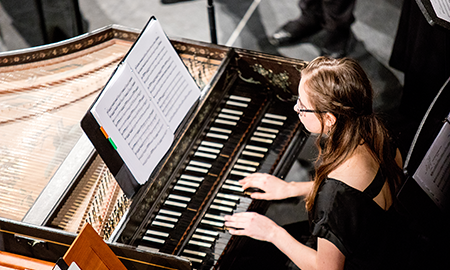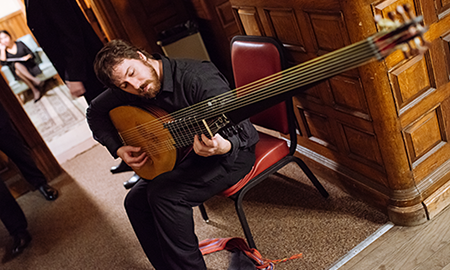
In the Early Music program, you will learn the elements of early music performance practice and to play an early music instrument (Baroque violin, Baroque guitar, Viola, Cello, Viola da Gamba, Flute, Recorder, Oboe, Early Brass Instruments, Lutes, Theorbo, Plucked Strings and Historical Keyboards). The program combines individual lessons and ensemble training with study of historical approaches to performance in its various activities - workshops, master classes, guest lecturers and research projects.
McGill owns an important collection of early instruments and historical copies from the 15th to the early 19th century, including five organs, sackbuts, cornetti, baroque and classical flutes, oboes, clarinets, horns, bassoons, viols, and more than a dozen baroque string instruments.
Minors, double degrees and double majors
Once you're enrolled in this program, you can apply to add a minor in another music field or from another faculty at McGill University.
You can also apply to add a second major or degree to your B.Mus. program.

Program structure
The B.Mus. Early Music program is made up of 125 credits.

Admissions
Apply by January 15 for Fall 2026

Student resources
If you're a new student, check out our orientation guide (link below)!

